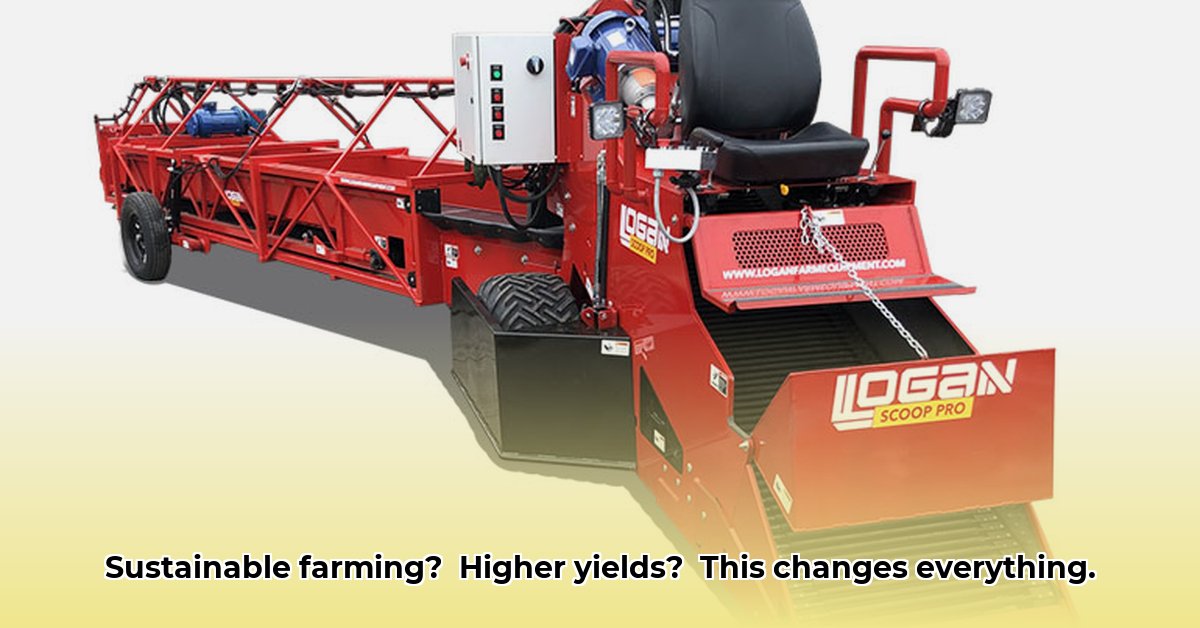
Scooper Tractors: Revolutionizing Sustainable Agriculture
Scooper tractors are transforming sustainable farming practices, offering a more efficient and environmentally friendly approach to crop management. Unlike traditional methods, these specialized machines provide precise application of organic materials like manure and compost, maximizing nutrient delivery and minimizing waste. This precision translates to healthier soil, higher yields, and significant cost savings for farmers. But how exactly do they achieve this, and what are the broader implications for sustainable agriculture? For more information on powerful agricultural machinery, check out this link to Kubota Tractors.
Healthy Soil, Bountiful Harvests: The Impact on Soil Health
Healthy soil is the cornerstone of sustainable agriculture. Scooper tractors play a vital role in improving soil health by meticulously distributing organic matter. This precise application ensures uniform nutrient distribution, leading to improved water retention, reduced erosion, and minimized nutrient runoff into waterways. Dr. Emily Carter, Soil Scientist at the University of California, Berkeley, notes, "The even distribution provided by scooper tractors is crucial. It prevents nutrient hotspots, promoting balanced microbial activity and healthier root systems." This careful application mimics nature's own nutrient cycling, fostering a more resilient and productive ecosystem. Isn't it remarkable how technology can emulate natural processes to promote sustainability?
Precision Farming: Optimizing Resource Use and Minimizing Waste
Traditional methods of spreading manure or compost often lead to uneven distribution and significant waste. Scooper tractors address this inefficiency through their precise application. This targeted nutrient delivery maximizes crop uptake, minimizing the need for chemical fertilizers, a key factor in reducing environmental impact and promoting sustainability. A recent study by the USDA found that farms utilizing scooper tractors experienced a 12% reduction in fertilizer use on average. Doesn't this demonstrate the remarkable potential of precision agriculture to balance productivity and environmental responsibility?
A Case Study in Success: Farmer John's Experience
Farmer John, a dairy farmer from Wisconsin, exemplifies the benefits of adopting scooper tractors. After implementing this technology, he witnessed a significant 15% increase in crop yields and a substantial reduction in fertilizer costs. He attributes this success to the improved soil health and more efficient nutrient utilization. "The scooper tractor has been a game-changer," Farmer John explains, "It not only boosted my yields but also significantly reduced my environmental footprint." This real-world example showcases the tangible benefits of scooper tractor technology.
The Future of Scooper Tractors in Sustainable Agriculture
Technological advancements are continuously refining scooper tractor technology. We can anticipate further enhancements in:
- Enhanced Precision: Expect even more accurate and targeted nutrient delivery, further minimizing waste and maximizing yield.
- Integrated Data Systems: Real-time monitoring and data analysis will optimize application rates based on soil conditions and crop needs, enhancing efficiency and sustainability.
- Autonomous Operation: Self-driving scooper tractors are on the horizon, promising to revolutionize efficiency and reduce labor demands.
These developments underscore the increasing importance of scooper tractors in a future where sustainable practices are no longer optional but essential.
Implementing Scooper Tractors: A Practical Guide
Integrating scooper tractors into your farming operation requires careful planning:
- Needs Assessment: Determine the appropriate scooper tractor size and model based on your field size, crop types, and volume of organic matter to be managed.
- Financial Evaluation: Calculate the return on investment, considering initial costs against potential long-term savings in labor, fuel, and fertilizers.
- Invest in Training: Ensure proper training for operators to maximize efficiency and safety.
- Strategic Integration: Plan how the scooper tractor will seamlessly integrate into your existing farming practices for optimal results.
Weighing the Pros and Cons
| Pros | Cons |
|---|---|
| Increased crop yields | High initial investment cost |
| Reduced fertilizer costs | Requires specialized training and maintenance |
| Improved soil health | Potential for mechanical breakdowns |
| Environmental benefits (reduced runoff) | May not be suitable for all farm sizes/types |
| Increased efficiency & reduced labor costs | Dependence on technology |
Scooper tractors present a compelling solution for farmers seeking to increase yields while minimizing their environmental impact. While there are challenges, the long-term benefits often outweigh the initial investment and operational considerations.
Key Takeaways:
- Scooper tractors offer a significant advantage in precision nutrient application for improved soil health and increased yields.
- The technology promotes sustainable agriculture by minimizing waste and reducing the need for chemical fertilizers.
- Adopting scooper tractors requires careful planning, assessment of needs, and adequate training.